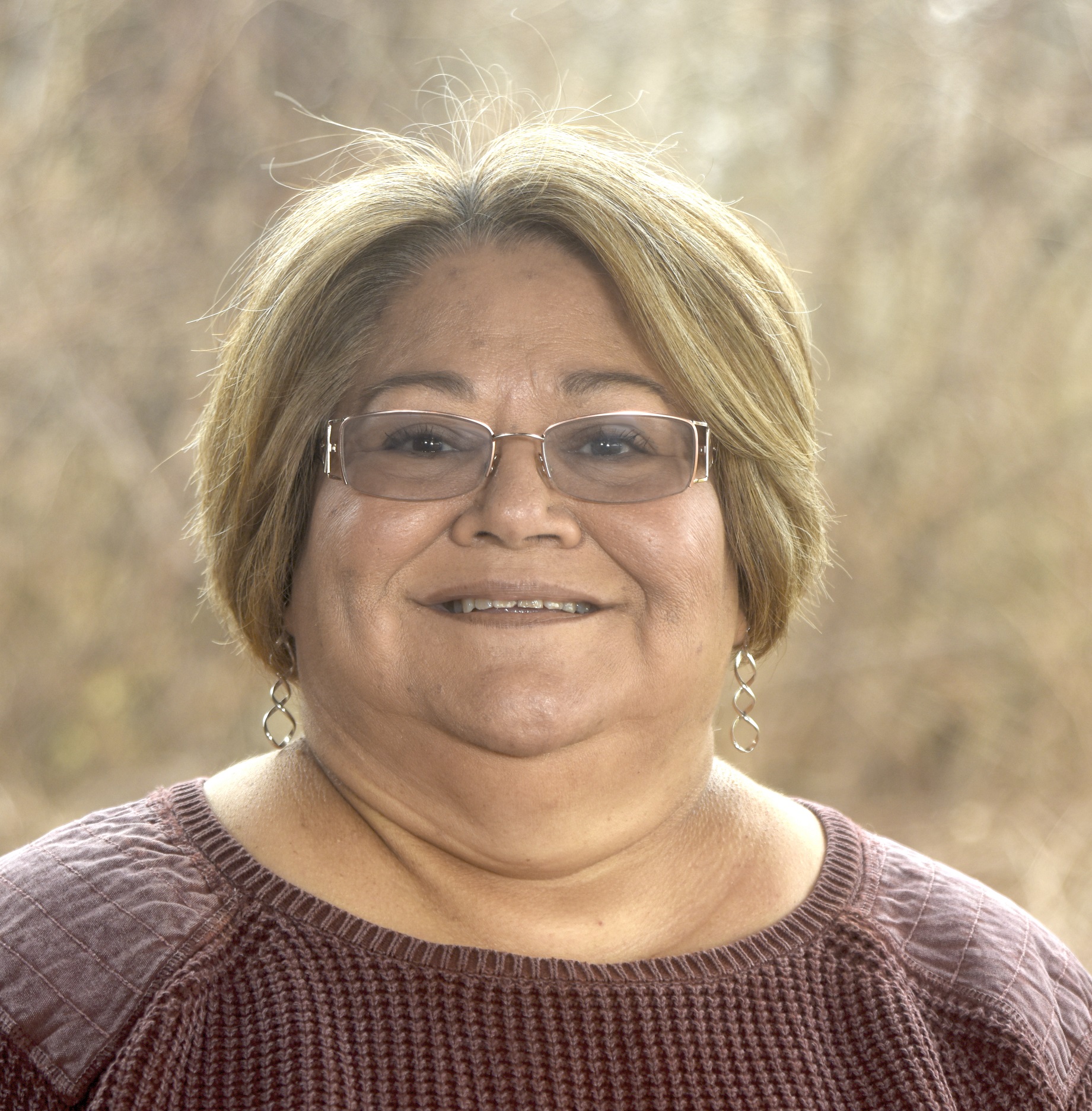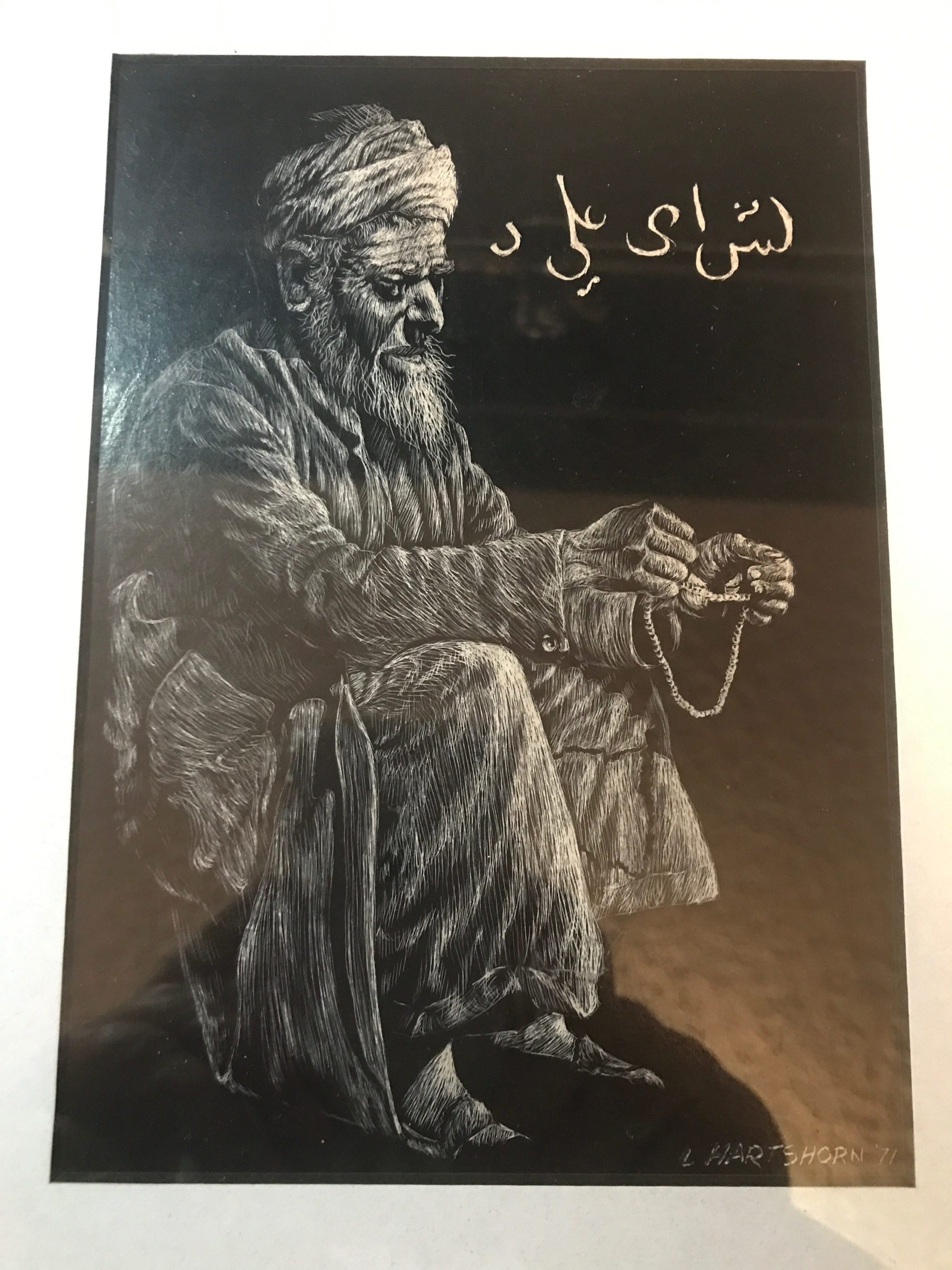 Iris de León-Hartshorn is the director of Transformative Peacemaking for Mennonite Church USA. This is the third in a three-part blog series based on a presentation Iris gave on leadership at Eastern Mennonite Seminary in January 2018.
Iris de León-Hartshorn is the director of Transformative Peacemaking for Mennonite Church USA. This is the third in a three-part blog series based on a presentation Iris gave on leadership at Eastern Mennonite Seminary in January 2018.
In this time of such turmoil in our church and society, I have reflected on what church leaders need to help the church move forward and be effective. Besides the obvious leadership requirements of self-awareness, organizational skills and so on. I want to suggest four things for your consideration.
First, Church leaders need to abide by the two commandments Jesus gave us: To love God with all your heart, soul and mind and to love each other as yourselves. Being rooted in God’s love is sorely needed right now. It feels as though we have forgotten how it feels to experience God’s unconditional love for us. Our love for power, success and material wealth have clouded our true love of God. If we can’t deeply love God, how can we love ourselves and much less others? Love in our culture has been exploited and sexualized and has given us a warped sense of love.
There are many challenges in the love commandments Jesus left. One of the challenges is loving those we serve even when we disagree.
Having a deep love that cares for the wellbeing of those we disagree with or view as an enemy is essential. In the midst of such polarization, do we really love each other? Are we rooted in God’s love? This love commandment is not an option for future leaders. If the church is to be a witness to the world, the world must see God’s love demonstrated among the believers.
Presently and historically, our church splits damage our witness. Disagreements will always happen, but how we handle them will determine how the church is viewed from the outside. Martin Luther King, Jr. said, “Love is the only force capable of transforming an enemy to a friend.” This is what leaders need to demonstrate. Love’s transformative power is essential in the work of the church. We need leaders now, more than ever to demonstrate that type of love.
I don’t know how many of you may have known Vincent Harding. He was once a Mennonite pastor and was a good friend of Martin Luther King, Jr. As a matter of fact Harding wrote the “Beyond Vietnam,” the speech King gave at Riverside church. Harding had an extraordinary ability to exude love when speaking with an array of people. He always responded to people who disagreed with him in a loving gentle voice, never forsaking his own values, but able to openly accept others, who at times were mean spirited. Every time I was in his presence and witnessed his love towards others, I was amazed. His gentle and loving soul made him a giant among those who knew him or even encountered him once.
Second, we need leaders who demonstrate moral courage — ability to stand for what is just in how people are treated. Jesus demonstrated moral courage throughout the Gospels — when he stood by the woman who was going to be stoned or when he called out to the woman who touched his robe and was made well. He also showed moral courage when he turned the tables in the temple and stood up to the Pharisees. Sometimes we have used the phrase “speaking truth to power,” but I prefer moral courage because speaking truth to power is just one part of it, the other is standing with the marginalized.
It is no longer adequate to just say we are against sexual abuse, the killing of people of color by police or racism. Moral courage requires we stand with the victims, with grieving mothers and fathers. Turning away is not an option.
King said, “There comes a time when one must take a position that is neither safe nor politic nor popular, but he must take it because his conscience tells him it is right.” These last couple of years we have heard stories of sexual harassment and abuse. We have heard the call from Black Lives Matter of black men and women dying at the hands of police, who is supposed to protect us. We have heard the cries of immigrants as they are belittled by our president. We are not just talking about people outside our church. People experiencing abuse, unjust treatment, racism and belittlement are members in our congregations. Silence is not an option, and empty words can no longer suffice. Leaders must have the moral courage to move, inspire and teach the church to respond in ways that are just and loving. Leaders can no longer take a path that is safe but a path that demonstrates the moral courage that Jesus took even unto the cross.
We need church leaders that understand the importance of imagination. We need people who can envision not just a future for the church but a pathway to help get us there. We need people who are not afraid to try something new. And if it fails, to see it as a learning opportunity instead of a failure. We need to be inspired by musicians, artists and poets. God gifts people for the edification of the church, and we must learn to pay attention to them.
 My husband is a retired pastor but he is also an artist and musician. When we were dating, for my birthday, he gave me one of his ink drawings of a Middle Eastern man in a sitting position praying with his prayer beads. I love this picture. It speaks to me of devotion and it inspires me. The man has these deep wrinkles across his forehead bent slightly forward conveying humility to me. He has had a lifetime of experiences as an older person and yet with all his lifetime knowledge he takes time to pray. Through the act of praying, he acknowledges God, a power, a being beyond himself.
My husband is a retired pastor but he is also an artist and musician. When we were dating, for my birthday, he gave me one of his ink drawings of a Middle Eastern man in a sitting position praying with his prayer beads. I love this picture. It speaks to me of devotion and it inspires me. The man has these deep wrinkles across his forehead bent slightly forward conveying humility to me. He has had a lifetime of experiences as an older person and yet with all his lifetime knowledge he takes time to pray. Through the act of praying, he acknowledges God, a power, a being beyond himself.
We need leaders who can see and understand the need to be inspired and imagine something beyond ourselves.
God, who is creator of the universe, has given us possibilities. If given the opportunity to dream and imagine we just might be able to envision the world that God has intended for all of creation.
Lastly the church needs leaders who will bring people along. Solo leadership is too dangerous. Power is intoxicating, and when we have solo leaders the temptation is great. When leaders have the responsibility of bringing others with them into leadership as mentors, team members or accountability groups, it is better for the church. I’m not sure how much this has to do with gender, but I have found most women in leadership seem to be more open to team or shared leadership. Women leaders tend to mentor other women, not so much in an official capacity but in natural ways as a friend or co-worker.
In a world of rapid change and churches so divided, leadership is and will continue to be a challenge. I believe we have people who will step forward, called by God, who have the love in their hearts to answer God’s call. Moral courage will be needed to make difficult decisions that must be made, to stand up against injustice in word and deed. Imagination can help us envision a different future for the church that is effective. And bringing people along, knowing solo leadership is both a burden and a temptation in misusing power.
May God give us the wisdom as we serve the church where we are and be open to hear the Spirit.

